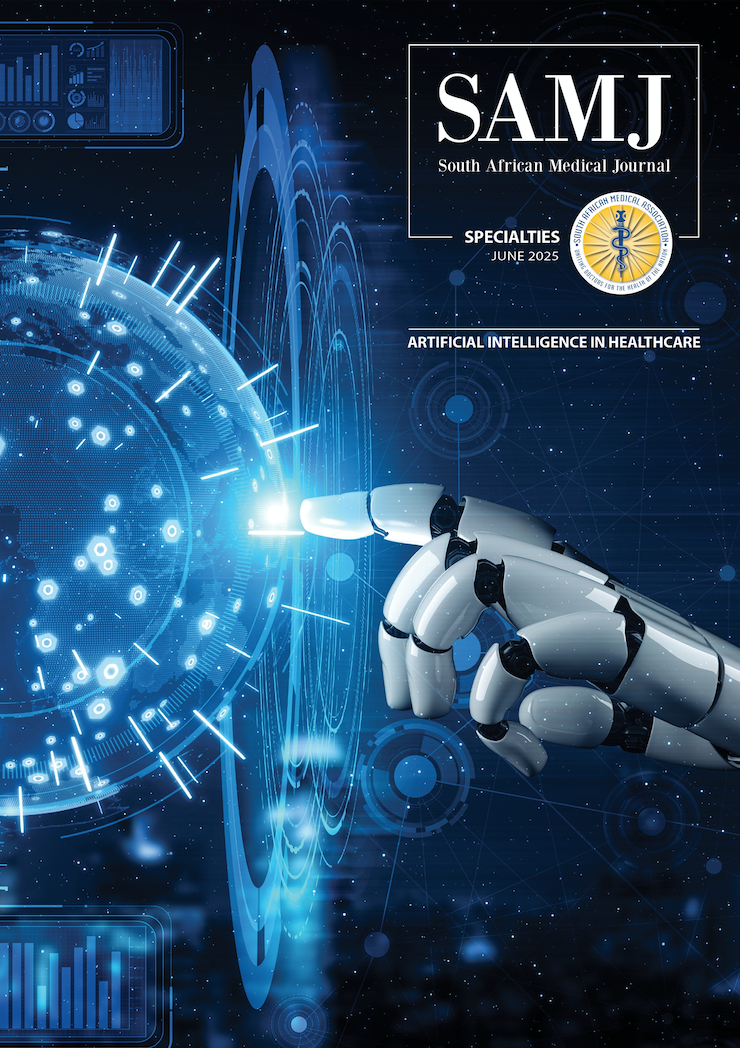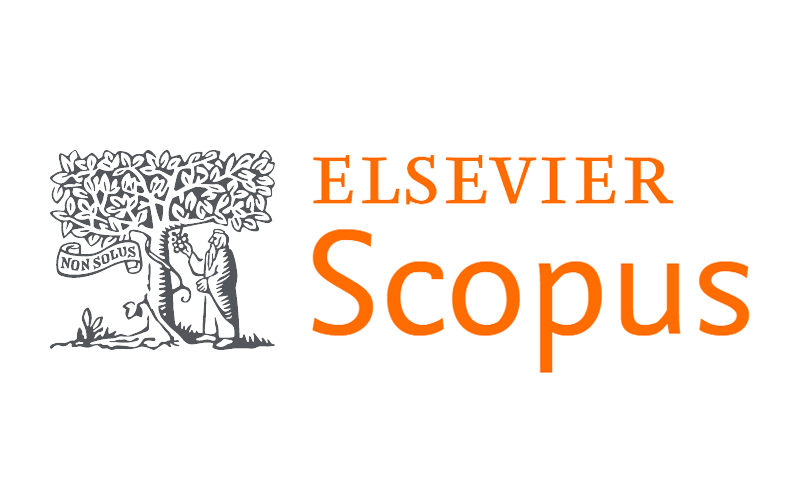The role of AI in transforming healthcare in South Africa
DOI:
https://doi.org/10.7196/SAMJ.2025.v115i5b.3672Keywords:
Transforming HealthcareAbstract
South Africa’s healthcare system struggles with resource constraints, workforce gaps, and rising disease burdens. Artificial intelligence (AI) offers a scalable solution – enhancing diagnostics, drug discovery, and clinical decision-making while optimising hospital efficiency. Success depends on interoperable data, bias-aware AI models trained on local datasets, and robust ethical frameworks. Learning from China’s AI health strategy and leveraging BRICS collaboration, South Africa must prioritise a unified digital health infrastructure to ensure equitable, secure AI adoption. Responsible implementation can augment clinical expertise and improve care standards across public and private sectors.
References
1. Arora N, Banerjee AK, Narasu ML. The role of artificial intelligence in tackling COVID-19. Future Virol 2020;15(11):717-724. https://doi.org/10.2217/fvl-2020-0130
2. Markets and Markets. Artificial intelligence (AI) in healthcare market growth, drivers, and opportunities. https://www.marketsandmarkets.com/market-reports/artificial-intelligence- healthcare-market-54679303.html (accessed 30 March 2025).
3. Naidoo S, Bottomley D, Naidoo M, Donnelly D, Thaldar D. Artificial intelligence in healthcare: Proposals for policy development in South Africa. S Afr J Bioethics Law 2022;15(1):11-16. https://doi. org/10.7196/SAJBL.2022.v15i1.797
4. Ayaad O, Alloubani A, ALhajaa EA, et al. The role of electronic medical records in improving the quality of health care services: Comparative study. Int J Med Informatics 2019;127:63-67. https://doi. org/10.1016/j.ijmedinf.2019.04.014
5. Hanna MG, Pantanowitz L, Jackson B, et al. Ethical and bias considerations in artificial intelligence/ machine learning. Mod Pathol 2025;38(3):100686. https://doi.org/10.1016/j.modpat.2024.100686.
6. Department of Communications and Digital Technologies. South Africa’s artificial intelligence (AI)
planning. https://www.dcdt.gov.za/images/phocadownload/AI_Government_Summit/National_AI_
Government_Summit_Discussion_Document.pdf (accessed 30 March 2025).
7. Think Global Health. South Africa’s medical negligence crisis. 2024. https://www.thinkglobalhealth.
org/article/south-africas-medical-negligence-crisis (accessed 30 March 2025).
8. TRENDS Research & Advisory. China’s AI strategy: A case study in innovation and global ambition. https://trendsresearch.org/insight/chinas-ai-strategy-a-case-study-in-innovation-and-global-
ambition/ (accessed 30 Mar 2025).
Downloads
Published
Issue
Section
License
Copyright (c) 2025 W Janneker

This work is licensed under a Creative Commons Attribution-NonCommercial 4.0 International License.
Licensing Information
The SAMJ is published under an Attribution-Non Commercial International Creative Commons Attribution (CC-BY-NC 4.0) License. Under this license, authors agree to make articles available to users, without permission or fees, for any lawful, non-commercial purpose. Users may read, copy, or re-use published content as long as the author and original place of publication are properly cited.
Exceptions to this license model is allowed for UKRI and research funded by organisations requiring that research be published open-access without embargo, under a CC-BY licence. As per the journals archiving policy, authors are permitted to self-archive the author-accepted manuscript (AAM) in a repository.
Publishing Rights
Authors grant the Publisher the exclusive right to publish, display, reproduce and/or distribute the Work in print and electronic format and in any medium known or hereafter developed, including for commercial use. The Author also agrees that the Publisher may retain in print or electronic format more than one copy of the Work for the purpose of preservation, security and back-up.





